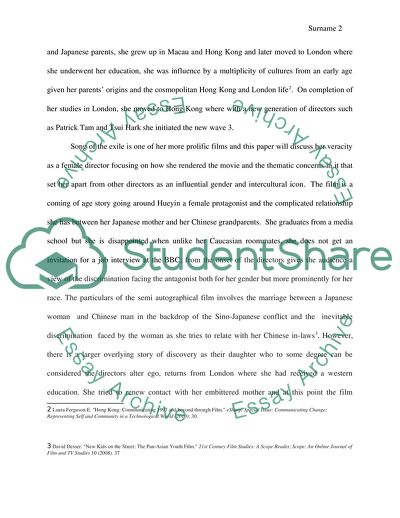Cite this document
(Ann Hui and her Movie Song of the Exile Review Example | Topics and Well Written Essays - 1500 words, n.d.)
Ann Hui and her Movie Song of the Exile Review Example | Topics and Well Written Essays - 1500 words. https://studentshare.org/history/1831710-ann-hui-and-her-movie-song-of-the-exile
Ann Hui and her Movie Song of the Exile Review Example | Topics and Well Written Essays - 1500 words. https://studentshare.org/history/1831710-ann-hui-and-her-movie-song-of-the-exile
(Ann Hui and Her Movie Song of the Exile Review Example | Topics and Well Written Essays - 1500 Words)
Ann Hui and Her Movie Song of the Exile Review Example | Topics and Well Written Essays - 1500 Words. https://studentshare.org/history/1831710-ann-hui-and-her-movie-song-of-the-exile.
Ann Hui and Her Movie Song of the Exile Review Example | Topics and Well Written Essays - 1500 Words. https://studentshare.org/history/1831710-ann-hui-and-her-movie-song-of-the-exile.
“Ann Hui and Her Movie Song of the Exile Review Example | Topics and Well Written Essays - 1500 Words”. https://studentshare.org/history/1831710-ann-hui-and-her-movie-song-of-the-exile.


